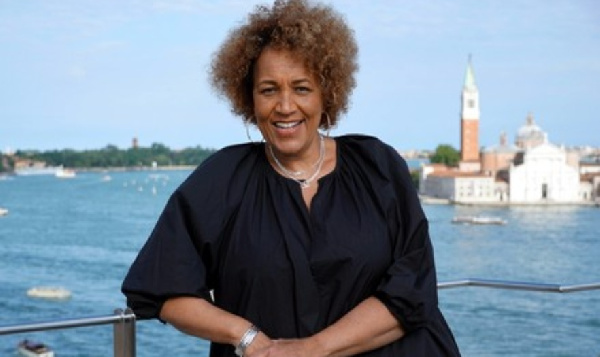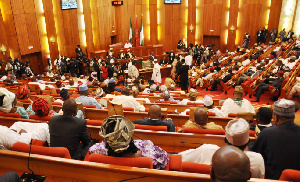Meet Lesley Lokko, the woman breaking grounds for Africa at the Venice Architecture Biennale

Lokko has her roots in Accra, Ghana, and Dundee, Scotland. According to the New York Times, the 59-year-old called the appointment “an opportunity to talk to the rest of the world about Africa” and vice versa. She pointed out that “The ability to be several things at once – traditional and modern, African and global, colonized and independent – is a strong thread running through the continent and the Diaspora.”
Lokko also noted that her dual nationality has given her the ability to thrive in different environments and cope with change.
This year’s 18th International Architecture Exhibition will focus on “The Laboratory of the Future,” as announced by the President of La Biennale di Venezia, Roberto Cicutto, and seeks to explore Africa as the center of the future of architecture.
Speaking on Lokko’s appointment, Cicutto said that her appointment as “curator of the 18th International Architecture Exhibition is a way of welcoming the gaze of an international personality who is able to interpret through different roles, her own position in the contemporary debate on architecture and cities, which takes as its starting point her own experience immersed in a continent that is increasingly becoming a laboratory of experimentation and proposals for the whole contemporary world.” Archdaily reported.
This year’s Biennale will see the likes of Diebedo Francis Kere, Moad Musbahi, David Adjaye, Olalekan Jeyifous, and Nairobi firm – Cave Bureau, among others, as its participants.
Lokko was born to a Ghanaian Father and a Scottish mother. She recalls facing internal issues with self-identity because of her biracial heritage. Her life’s journey has taken her through the United Kingdom, the United States, and Africa, where she was continually faced with issues of her race and identity.
The 59-year-old’s passion for architecture was stirred in Los Angeles. In an interview with The Republic, Lokko recalled how her boss in Los Angeles had asked her to help him choose some countertops for a venture he was starting and showed her a sketch. He later told her she “ought to be an architect,” when she used her experience in art from her mother who had been an art teacher to draw a perspective for him; this informed her decision.
She enrolled at University College, London’s Bartlett School of Architecture, where she completed her undergraduate and postgraduate degrees. Lokko admits that even though she excelled at architecture, she found it frustrating. Her desire to find something else to channel her creativity led her to become a novelist. She has since published twelve novels, her first being ‘Sundowners’ in 2004.
The architect’s teaching journey began in 2014 with an offer to be an external examiner, which caused her to move to Johannesburg – where she established a Post Graduate School of Architecture at the University of Johannesburg. During her time at the University, she came to the conclusion that South Africans needed changes in their architectural structures, which seemed to support the apartheid culture, to move forward completely from that dreadful era.
Lokko’s fascination and apprehension with issues centered on race and identity politics found a natural home in South Africa. She contributed to the University of Johannesburg by introducing the metric system of teaching, which was first developed at University College, London.
From Johannesburg, she moved to America and took on the role of Dean of the Anne and Bernard Spitzer School of Architecture at the City College of New York, where she faced racism – which caused her to resign after a year. She then returned to Ghana in 2020 and founded the African Futures Institute.
Sharing her thoughts on Africa as a laboratory for the future of architecture, Lokko said, “In Europe we speak of minorities and diversity, but the truth is that the West’s minorities are the global majority. There is one place on this planet where all these questions of equity race, hope, and fear converge and coalesce, Africa. At an anthropological level, we are all African, and what happens in Africa happens to us all.”
Source: face2faceafrica.com





